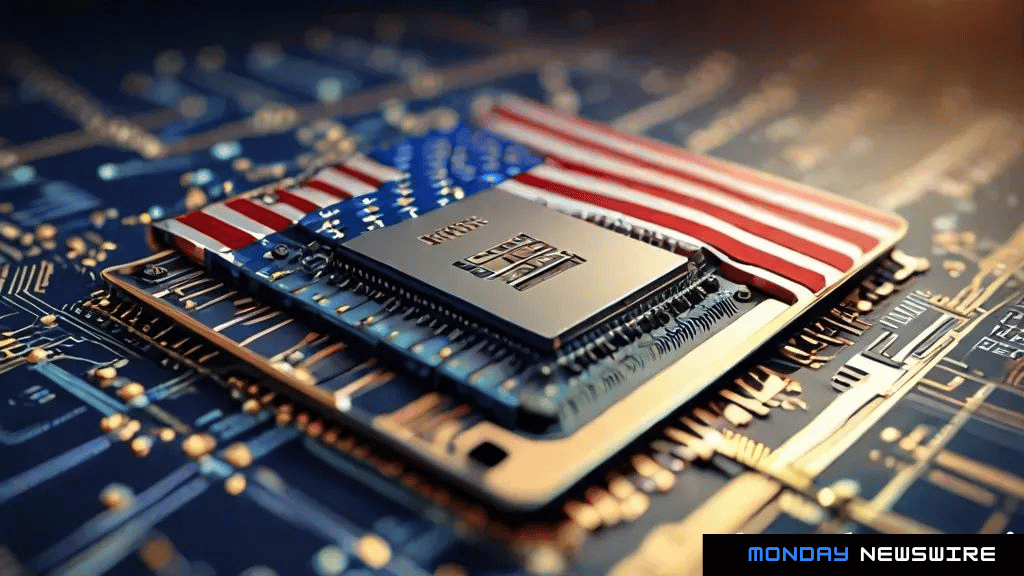Quantum Computing Ground Breaks in US Markets
It is a new technological revolution that is promising to bring new processing power that will revolutionize industries across the globe. In the U.S. market, these breakthroughs in quantum computing, quantum processors, and computing power are specifically poised to transform several industries as quantum technology gets advanced and opened up. Understanding Quantum Computing Quantum computing is a completely new paradigm of computation that uses the principles of quantum mechanics. While classical bits may only be 0 or 1, quantum bits, or ‘qubits’ can be both 0 and 1 at the same time. Also, in entangled qubits, quantum information can be transmitted instantly, irrespective of the distance between the two qubits. Such characteristics make quantum computing able to solve enormous quantities of data at very high speeds, and this makes it suitable for applications in areas like cryptography, pharmaceuticals, and even finance. Some of the advancements in quantum processes are as follows: The quantum processor, which is the heart of a quantum computer, has undergone a drastic change in the last few years. These improvements have made the quantum processors more stable, coherence times longer, and error rates have been reduced, making them more efficient. Tech giants such as IBM and Google have been at the forefront of the development of quantum processors that can solve complex equations. For instance, IBM’s Quantum System One is a breakthrough in the design of the quantum processor. This system combines quantum hardware with classical computing assets and has advanced qubits that improve the efficiency and dependability of the machine. Likewise, Google’s Sycamore processor recently claimed quantum supremacy for its kind when it solved a particular problem at a time that was beyond the capabilities of the best-ranging classical supercomputers. Enhanced Computing Power Quantum computing is the next level of computing ability, which offers the capability to change complete industrial sectors. The great computational capability of quantum computers became a major threat to traditional cryptography methods, which resulted in the necessity of creating methods that could protect data from quantum computers. In the pharmaceutical industry, quantum simulations are useful in designing interactions at the molecular level and achieving useful accuracy at the atomic level, thereby minimizing the time it takes to discover and develop drugs. A significant application of quantum computing is also the improvement of the computing capabilities of the financial sector. A quantum computer will be able to perform any required financial analysis and risk evaluation much faster and with a much higher level of accuracy and precision. This additional computing power should result in the creation of new products and business models that will revolutionize industries. Challenges and Solutions However, some issues are still open even today, when progress in the field of quantum computing is rather great. Quantum systems are very sensitive to interference and noise that induces decoherence that fails in the calculations. Nevertheless, new approaches to solving the problem of quantum error correction are being invented, and thus, quantum computers have become more stable and efficient. Another important issue is scalability. Imagine trying to sustain the coherence of thousands or millions of qubits, which is needed to assemble a large-scale quantum computer. That is a technological challenge. However, these barriers are being worked on through research and development to come up with new designs of qubits and the development of quantum architectures that can lead to the creation of better quantum systems. U.S. Markets and Quantum Computing The U. S. market is favorable for the exploitation of new quantum computing, quantum processors, and computing power. This technology is considered as very important hence why the U. S. government has passed laws and policies like the National Quantum Initiative Act to fund research, development, and education in quantum information science. This legislation increases funding and encourages the partnership of academia, private industry, and government for a strong Quantum ecosystem. Currently, several of the leading technology companies from the United States have been investing in quantum computing research and development through the provision of capital and expertise, and these include IBM, Google, and Microsoft. These companies are creating sustainable quantum systems while start-ups and small businesses concentrate on certain niches and innovations. This changing environment is helping the advancement at a fast pace and the United States is leading in the quantum technology field. Future Prospects The prospects of quantum computing in the United States are rather bright. Quantum processors and computing power are growing and with it, fully commercial systems of quantum computing are predicted to appear shortly within the next ten years. The more these systems will become easy to use, the more industries will be able to tap into them and the result will be innovations and growth. Quantum computing is capable of solving some of the social issues that are most demanding in the present world. From supply chain to energy grid management, artificial intelligence, and climate modeling, quantum computing has a wide and disruptive range of applications. As the market has a good technological platform and policy support, the development of the U. S. market is highly capable of leading the quantum revolution. In conclusion, quantum computing is a true revolution in technology, providing unprecedented computing power and the ability to solve problems that classical computers cannot tackle. Recent trends driving this revolution include advancements in computing power. With the support of the American market and ongoing research and development, the potential of quantum computing is vast, promising new opportunities and solutions for various industries and global challenges. The future of quantum computing looks exceptionally promising, and America is well-positioned to leverage its full potential, including the development of cutting-edge quantum processors.



Comments ( 0 )